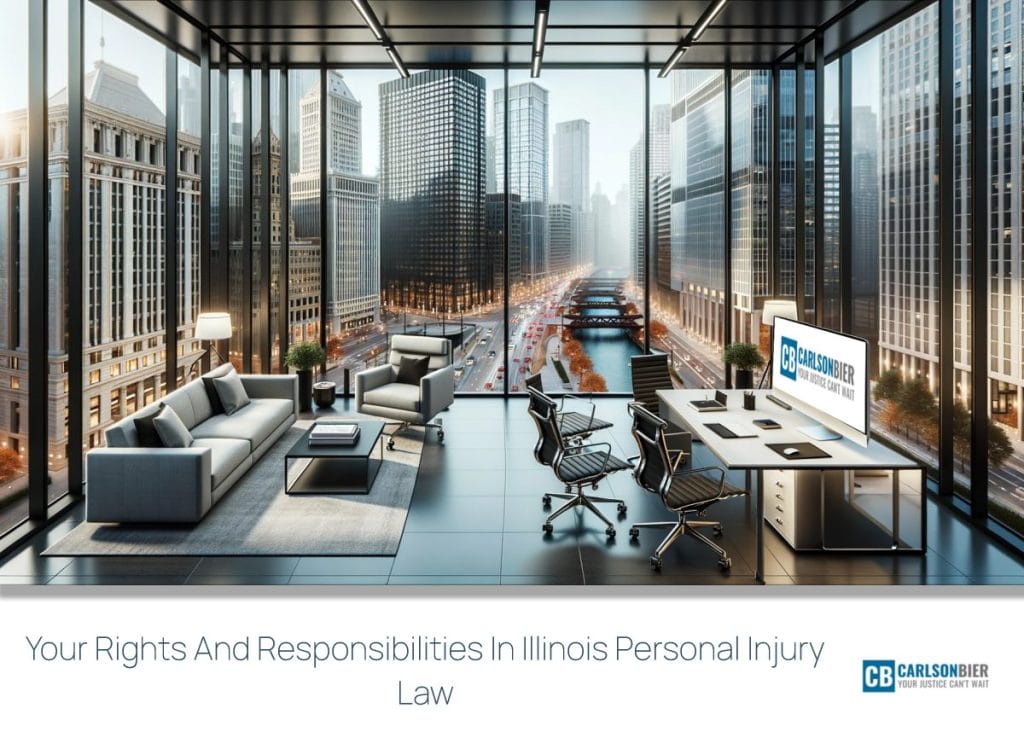Understanding Illinois Personal Injury Law
The realm of personal injury law in the state of Illinois is extensive and multi-faceted. It encompasses rules and regulations that deal with injuries and accidents, offering protection to those who have come to harm as a result of another person’s negligence. With a deep understanding of your rights and responsibilities, you are well-equipped to navigate the intricacies of personal injury law.
Defining Personal Injury Law
First and foremost, it’s important to understand what exactly constitutes an injury in the eyes of the law. Personal injury law focuses on providing recourse to individuals who have suffered harm due to someone else’s negligent, reckless, or intentional misconduct.
Your Rights in Illinois Personal Injury Law
Under Illinois law, individuals injured due to another party’s negligence or wrongdoing have certain rights, all of which are crucial to a successful personal injury claim:
– Right to Compensation: The heart of Illinois personal injury law is the right to compensation. That is, individuals suffering physical, emotional or financial harm due to others’ negligence have a legal right to seek financial restitution for their losses.
– Right to Legal Counsel: Everyone has the right to hire an attorney. Legal representation plays an invaluable role in navigating the complexities of the legal process, ensuring your rights are upheld, and seeking the maximum compensation possible.
– Right to Sue: The victim of a personal injury has the right to sue the negligent party. To do so, one must prove that the defendant was negligent, that their negligence caused the injury, and that the injury resulted in damages.
– Right to Privacy: All personal injury claimants have the right to maintain their privacy to a certain extent. While you may need to share personal medical records and information to substantiate your claim, your right to privacy is still protected under the Illinois Health Care Right of Conscience Act. (Source)
Your Responsibilities in Illinois Personal Injury Law
Along with understanding your rights, it’s equally important to have a firm grasp on your responsibilities when filing an Illinois personal injury lawsuit:
– Duty to Mitigate Damages: Injured parties have a duty to take reasonable steps to mitigate or lessen the extent of their damages after an accident. If you are seen to be exacerbating or prolonging your injuries, it could negatively impact your case.
– Duty to Seek Timely Medical Care: After an injury, you must seek medical treatment promptly. Not only does this protect your health, it also provides a vital link between the incident and your injuries.
– Duty to Preserve Evidence: In personal injury cases, it’s crucial to maintain evidence that can be used to establish the defendant’s negligence and the extent of your injuries.
Limitations and Timelines in Personal Injury Law
In Illinois, as with all states, timelines are critical when it comes to filing a personal injury case. The statute of limitations for most personal injury cases is two years from the date of the accident.
A Path to Legal Redress
If you believe you have a valid personal injury claim, exercising your rights and fulfilling your responsibilities under Illinois law is key. But remember, legal processes can be daunting and complicated, and it’s often wise to enlist the help of a legal professional.
Here at The Law Office of Carlson Bier Associates, we’re dedicated to ensuring your rights are upheld and you receive the compensation you deserve. If you’re navigating the complexities of personal injury law in Illinois, we’re here to help.
Conclusion
Understanding your rights and responsibilities in Illinois personal injury law is the first step toward achieving justice and obtaining the compensation you deserve. By keeping the ‘Illinois Personal Injury Rights’ in mind and entrusting your case to a competent legal team, you can confidently navigate your way through the potentially turbulent waters of personal injury law. With the right knowledge and support, you can turn a challenging situation into a victory for your rights.

